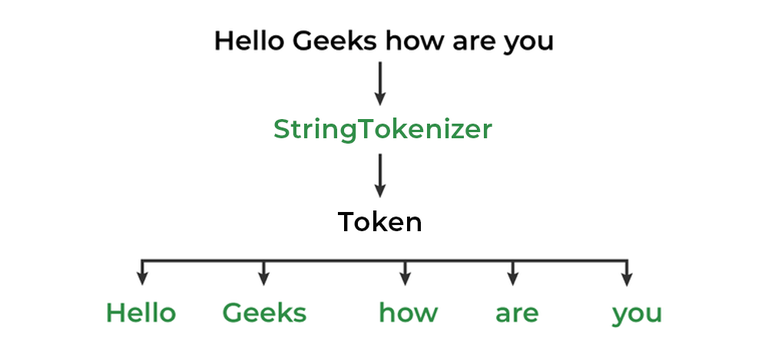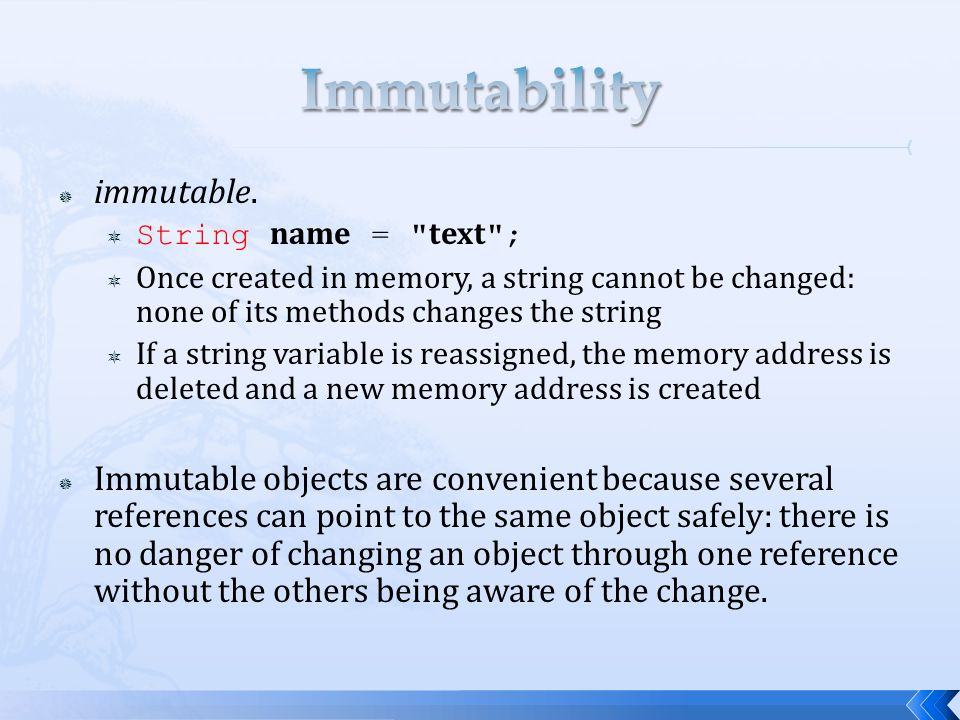What Is Immutable Strings and Just How It Works
In the realm of programs, recognizing the principle of unalterable strings is extremely important for creating safe and secure and robust applications. Immutable strings describe strings that can not be changed after they are produced, guaranteeing information stability and predictability within the code. This essential concept plays a crucial role in different programs languages and provides a distinct strategy to handling information. By discovering the complexities of just how unalterable strings work, one can reveal a globe of benefits and possibilities that can raise the quality and performance of software program development.
The Basics of Immutable Strings
Unalterable strings, as a fundamental concept in shows, are personality sequences that can not be transformed as soon as they are developed. This indicates that when a string is appointed a worth, that value can not be altered. In languages like Python and Java, strings are unalterable things, causing various effects in terms of memory monitoring and data integrity.
Among the crucial advantages of unalterable strings is that they provide a sense of security in information manipulation. Because the content of an unalterable string can not be customized, it guarantees that the original information remains intact, decreasing the threat of unintended modifications during program implementation (Why are strings immutable in Java?). This residential property also simplifies debugging procedures, as programmers can trust that as soon as a string is specified, its worth will not be accidentally changed
When a brand-new string is created based on an existing one, instead than changing the initial string, the new worth is stored individually. On the whole, comprehending the essentials of immutable strings is critical for grasping shows concepts and optimizing code performance.
Benefits of Unalterable Strings
Building upon the safety and performance advantages of immutable strings, their benefits encompass enhancing code integrity and streamlining simultaneous shows tasks. By being immutable, strings can not be changed after development, which gets rid of the risk of unexpected adjustments in the data they save. This fundamental immutability guarantees that as soon as a string is produced, its value remains continuous throughout the program's implementation, decreasing the opportunities of bugs brought on by unforeseen alterations.
Furthermore, immutable strings contribute to code integrity by making it much easier to reason regarding the state of a program. Because strings can not be transformed, designers can rely on that a string will constantly hold the exact same value, streamlining debugging and upkeep efforts. This predictability results in much more trustworthy and steady codebases.

Application in Programming Languages
Within various shows languages, the consolidation of unalterable strings is a fundamental element that affects just how information is taken care of and controlled within code frameworks. The implementation of unalterable strings varies throughout different programs languages, with each language supplying its very own systems to sustain this principle.

On the other hand, languages like C and C++ do not have integrated assistance for immutable strings. Designers in these languages have to manually implement immutability by applying rules within their code to stop straight adjustments to string objects.
Best Practices for Functioning With Immutable Strings
When managing unalterable strings in programming languages like Java and Python, sticking to finest techniques makes sure protected and effective data control. One of the key finest methods is to make use of StringBuilder or StringBuffer as opposed to straight adjusting strings, especially when taking care of comprehensive concatenation procedures. These classes give mutable alternatives for string adjustment, aiding to stay clear of unneeded memory appropriations and enhancing performance.
Additionally, when functioning with sensitive data such as passwords or API secrets, it is vital to prevent storing them as simple text in unalterable strings. Making use of safe storage devices like char arrays or specialized collections for dealing with delicate info aids alleviate safety and security dangers linked with unalterable strings.
Real-world Applications and Instances
Checking out functional applications of unalterable strings in numerous markets discloses their substantial effect on information stability and system integrity. In visit this site the healthcare market, unalterable strings play a critical function in making sure the safety and security and privacy of patient information. By stopping unapproved adjustments to delicate info such as medical records and prescriptions, immutable strings aid preserve conformity with strict privacy laws like HIPAA.
Banks also take advantage of the immutable nature of strings to improve the protection of consumer information and deal documents. Unalterable strings help stop scams and unauthorized changes to financial info, providing a durable protection versus cyber risks and making certain the depend on and confidence of customers.

Conclusion
To conclude, immutable strings are dealt with and unchangeable series of personalities that offer benefits such as thread safety and security and boosted performance in shows. They are executed in various programming languages to ensure information honesty and security. Ideal techniques for dealing with unalterable strings consist of avoiding direct adjustments and utilizing techniques that return brand-new string things. Real-world applications of immutable strings consist of information file encryption, caching, and string manipulation jobs.
Immutable strings refer to strings that can not be altered after they are developed, making certain information honesty and predictability within the code. When a brand-new string is developed based on an existing one, rather than customizing the original string, the brand-new value is saved individually.In languages like Java and Python, strings are unalterable by default, meaning that once a string object is developed, its worth can not be transformed - Why are strings immutable in Java?. Finest practices for functioning with unalterable strings consist of avoiding direct adjustments and using approaches that return brand-new string objects. Real-world applications of unalterable strings include information file encryption, caching, and string control jobs